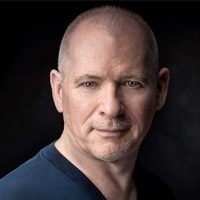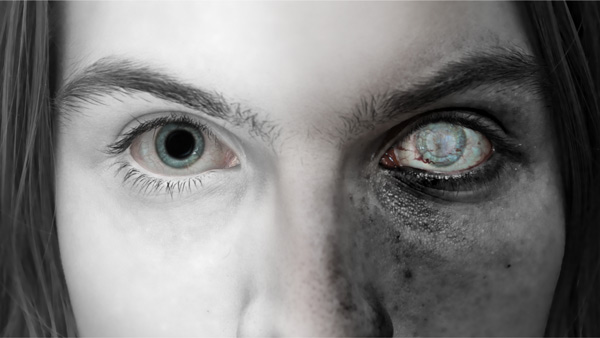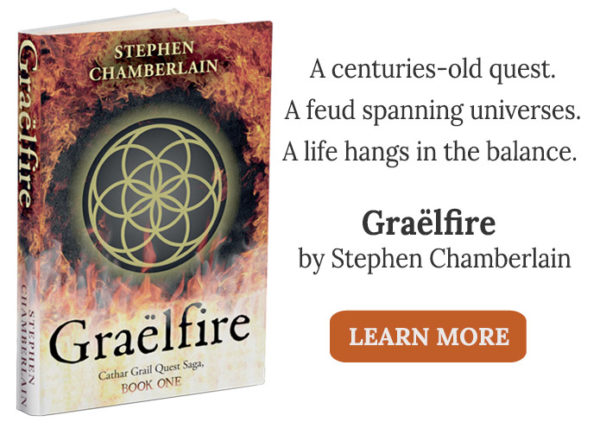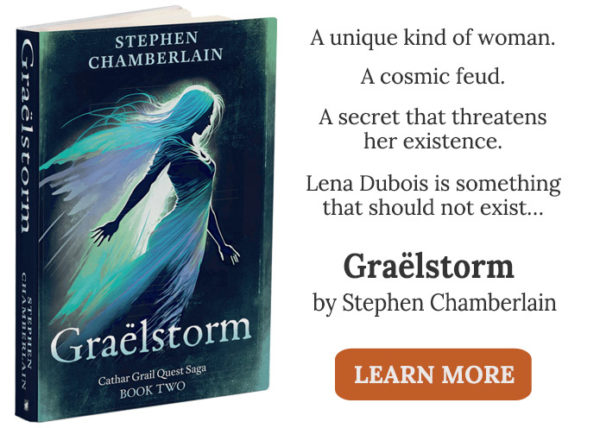“If only there were evil people somewhere, insidiously committing evil deeds, and it were necessary only to separate them from the rest of us… But the line dividing good and evil cuts through the heart of every human being. And who is willing to destroy a piece of his own heart?” – Alexander Solzhenitsyn
A glance at today’s headlines reveals a harsh truth: The world is polarized. Partisan politics are driving us apart when we should unite against global threats: climate change, terrorism, and the abuse of power.
You see it broadcast across the media—Brexit, immigration, trade wars, nationalism—people moving to extremes. “I’m right, you’re wrong” turns into “I’m good, you’re bad.” Compromise goes out the window, and the debate turns toxic. It’s us versus them. How many times have you heard rhetoric attacking opponents as cheats and liars or berating scapegoats as villains and parasites?
White Hat Versus Black Hat
The battle between right and wrong is the oldest story in the world. In modern times, think of The Lord of the Rings, Terminator 2, or the plots of best-selling adventure films: the James Bond series, the Star Wars films, and the Indiana Jones movies. Stories like these love to perpetuate stereotypes. The good guys are brave, righteous, and strong, whereas unscrupulous villains do anything to get what they want. No wonder we cheer when they get what they deserve. Take the supervillain Zemo in the movie Captain America: Civil War. He’ll go to any lengths to wreak his revenge, and because he is wicked, he has to be stopped.
The rhetoric of right versus wrong pulls on the minds of like-minded believers. That’s why politicians invent common enemies and demonize opponents. It’s why people lash out at scapegoats, and how innocents end up victims when those with agendas are indifferent to the eggs they break.
What is considered right or wrong can depend on your standpoint, a theme that recurs time and again in Captain America: Civil War. The movie is set in a world that is afraid of the Avengers’ super powers and is questioning if the ends justify their means. To Zemo, the Avengers are vigilantes who are indifferent to the collateral deaths their heroics cause among civilians. He blames them for the death of his family during the battle of Sokovia, and so he seeks retribution by setting the Avengers against each other.
Then there’s the rift between Captain America and Iron Man caused by the Sokovia accords that aim to register those with superhero powers and put them under UN supervision. Iron Man suffers guilt over the deaths of innocent bystanders and throws his weight behind the Accords. “We need to be put in check,” he says. “If we can’t accept limitations, we’re no better than the bad guys.” Captain America resists. He mistrusts centralized authority, a view reinforced when authorities blame his friend Bucky for a terrorist attack. Iron man decides to help the authorities catch Bucky. The result? Civil war among the Avengers as individual superheroes pick their sides.
The War Within
History shows that humans are a flawed species. We are capable of immense love, generosity, and sacrifice, but we are also prone to greed, deceit, cruelty, and violence. So, what brings out this dark side of human nature? Why are some people willing to hurt others to get what they want?
Most people see good and evil as binary opposites. Robert Louis Stevenson’s book, The Strange Case of Dr. Jekyll and Mr. Hyde has another take. It argues that every personality is a blend of good and bad. Only laws and civilization curb its immoral inclinations.
Dr. Jekyll appears a pillar of Victorian society, but he gives way to immoral impulses of which he is ashamed. Determined to split his personality and cast off his darker self, he develops a potion that brings Mr. Hyde into being. Hyde is a hairy and violent creature. And once let loose, he slowly takes over Dr. Jekyll’s nature until Jekyll ceases to exist. The moral of the story is that human nature has an inner beast lurking beneath the veneer of civilization.
Philosophers have debated this duality of human nature for centuries. Thomas Hobbes believed humans are wired to be wicked. They need ethics and rules to rein in their base instincts. Jean-Jacques Rousseau opposed this thinking. He argued that humans are born good and blamed outside influences for corrupting their good nature.
You Reap What You Sow
I’ve said before, I don’t buy into the “born bad” syndrome. As Elrond tells his council in The Lord of the Rings: “Nothing is evil in the beginning. Even Sauron was not so.”
Consider this extract from Harry Potter and the Order of the Phoenix:
Harry: What if after everything that I’ve been through, something’s gone wrong inside me? What if I’m becoming bad?
Sirius: I want you to listen to me very carefully, Harry. You’re not a bad person. You’re a very good person who bad things have happened to. You understand? Besides, the world isn’t split into good people and Death Eaters. We’ve all got both light and dark inside of us. What matters is the part we choose to act on. That’s who we really are.
J.K. Rowling presents the duality of good versus bad as a struggle between man and himself. In this moral dimension, free will gives us the freedom to choose between doing right or wrong. Aristotle had a similar view. He said that human nature has the potential for virtue or vice, and each of us chooses which aspect we display.
The Root of All Evil?
So, what causes someone to morph into a bad person if they didn’t start out way? For me, free will is a simplification too far. Choice of action is always there but making the right choice may be difficult for those with personality disorders.
In his book, Zero Degrees of Empathy: A New Theory of Human Cruelty, the internationally renowned professor of developmental psychology at Cambridge University, Simon Baron-Cohen, points to an absence of empathy as a characteristic of those who inflict harm on others. Empathy is that ability to identify what someone else is feeling and respond with an appropriate emotion. He argues that we all lie somewhere on an empathy spectrum. Those capable of committing evil or cruelty have zero to low degrees. Even if they know they are hurting others, these people can’t stop themselves or respond appropriately, because they lack enough empathy to curb their behaviour. To them, other people are objects to be exploited in pursuit of their personal goals.
So what causes people to dehumanize others? Do psychopaths and narcissists lose their empathy or are they born that way? Baron-Cohen’s research identifies a hormonal link between testosterone and empathy. The more pre-natal testosterone a person is exposed to in the womb the less they may identify with others as an adult. But he acknowledges that genes do not wholly determine degrees of empathy. Environment, nurture, and experience can each play a part.
Baron-Cohen says that most of us lie somewhere in the middle of the spectrum of empathy. This means we should recognize wrong when we see it and act to stop it. And yet history is filled with people who stand by and do nothing, which brings me back to politics and the theme of unbridled power. Political power carries danger because human nature is flawed. That’s why government needs checks and balances. Rule without oversight is a recipe for abuse, especially by politicians who act like dictators and those who adopt the mindset of “we and them.”

Stephen Chamberlain is the author of the fantasy novel Graëlfire. He draws inspiration from the impact of landscape on myth, and the association of liminality with the supernatural and magic. Stephen lives in Switzerland.




Beautifully written
I couldn’t agree less
Strangely it’s always about a bell curve: there would always be those with too much or too little of something at the extremes (in this case empathy), whilst the rest of us lay their in the middle – easily nudged to one direction by politics, stories and sentiments …because we are wholly confused and need directions on the right thing to do
That is why listening to those who paint others black is so dangerous
It’s a crazy world
Thanks again for this lovely piece Sir
Dear David,
Many thanks for your reply and your kind words. I’m glad you found the post interesting.Thankfully, as you say, wrongdoing and brutality are not an inevitable legacy of our nature. Each of us is capable of dark thoughts but most of us do not succumb to our base instincts, despite privation, provocation,and injustice. While some choose that dark path, many, with far greater reason, turn away.
Best regards,
Stephen